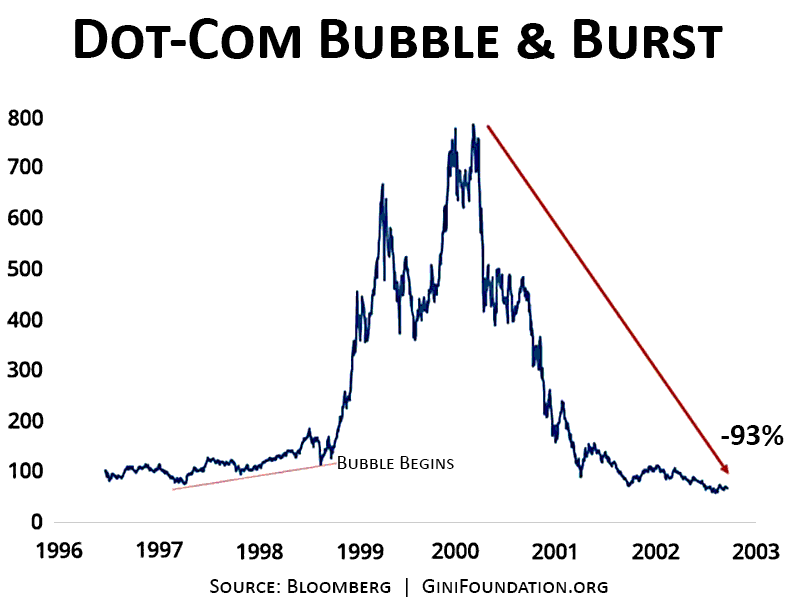How Can We Help?
Are Cryptocurrencies a Scam?
For approximately 99.5% of all cryptocurrencies and crypto-tokens, no rational justification can be made to defend their valuations. (Excluding a hyper-inflationary fiat currency environment.) In fact, the vast majority of cryptocurrencies are just huge ponzi schemes. So, we welcome the recent government scrutiny within the cryptocurrency industry that has emerged in recent months. But what about the other ~0.5% of cryptocurrencies? Are they scams? As always, history is a good teacher. . . .
Good Companies Survived the Dot-Com Bubble. The founders of most cryptocurrency projects today are too young to remember the Dot-Com Bubble in the late 1990s. So, they don't really understand how ridiculous their crypto projects often look to those of us who lived through those years. All the senior members of Gini's team personally witnessed the Dot-Com Bubble bursting in 2000-2001. We have vivid memories of many bogus companies pitching absurd business plans and products/services that had no substance or meaningful purpose beyond making the founders and early investors rich. Those companies deserved to fade into oblivion . . . and they did, thankfully.

A Speculative Bubble is Not the Same as a Ponzi Scheme. In terms of market size, the Dot-Com Bubble was approximately 2.5x larger than the cryptocurrency bubble at their respective peaks. All bubbles pop, but real companies with substance survive and thrive. Google, Amazon, PayPal, Netscape, Akamai, DoubleClick and many others born in the Dot-Com Era survived to become multi-billion-dollar companies and/or they were acquired for large sums of money by other major companies that appreciated their real and enduring value. A similar consolidation process is happening in the cryptocurrency industry today.
The Need for a Well-Designed Cryptocurrency is More Urgent than Ever. The reasons for this are vividly described and substantiated in the Gini whitepaper and in many other areas of the Gini website. Anybody who doubts that cryptocurrencies are essential for humanity doesn't really understand why cryptocurrencies were invented in the first place. A bubble in any asset class is merely a sign of temporary over-exuberance, not a repudiation of the entire asset class. Regardless, we are happy to see all the bogus crypto projects fading away because it accentuates the value of real projects like Gini that add real value to humanity.
Are Bitcoin, Ethereum, etc. Scams? They are not exactly scams. It's more accurate to perceive them as interesting science projects, but they are not designed to solve—and they never will solve—the fundamental problems that plague all fiat and crypto currencies today: insufficient transaction privacy, insufficient viability in real-world commerce, and grossly inequitable and unsustainable monetary systems. Read the Gini whitepaper to learn why Gini is different.
How to Evaluate a Cryptocurrency Project. It takes a significant amount of time to analyze all the technical, economic, cultural, and project governance factors to make a reasonable determination about whether a cryptocurrency is a worthwhile investment or not. Every project has different goals and exists at a different stage of development. For all these reasons, we have published a simple guide that should help people evaluate any cryptocurrency project: Should You Participate in the Gini Ecosystem?
Did You Like This Resource?
Gini is doing important work that no other organization is willing or able to do. Please support us by joining the Gini Newsletter below to be alerted about important Gini news and events and follow Gini on Twitter.

